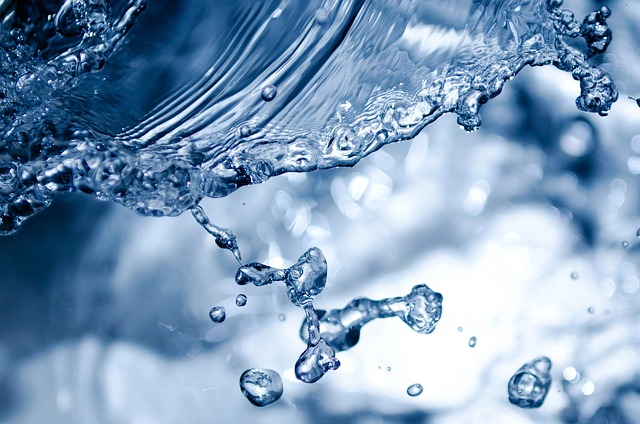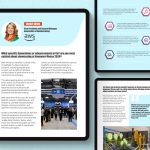Challenges and Opportunities in the Water Industry
What are the nine biggest challenges facing the global water industry and what can ABB do to to help resolve them? The world’s population is growing, and so too is the need for water, food and energy. By 2030, there will be 1 billion more people on the planet and global demand for water could outstrip supply by 40 percent, according to the United Nations. Not only is the need for water escalating, the utilities and companies that supply that water face major operational challenges daily.
Biggest Challenges Facing Water Industry
1. Droughts and floods
Droughts and floods affect all regions of the world and they represent one of the water industry biggest challenges.
Droughts rarely impact an entire country. Often, water is available in some places, but not in others. Water transfer schemes solve this problem by piping water from areas of abundance to places where it is needed, easing the effects of drought. ABB has delivered many water transfer schemes, especially in the Middle East. Our latest project is the North-South Carrier in Botswana, where our solution automates and powers the pipeline and pumping stations that carry water from the north to the capital in the south.
Water and wastewater treatment plants are critical infrastructure. Even when storms flood coastal cities and rivers burst their banks, the plants must remain in operation, 24/7, whatever the conditions. In the Netherlands, ABB solutions control the Maeslant storm surge barrier, one of the largest moving structures on Earth, which protects Rotterdam and Europe’s biggest port from flooding. And in Venice, our solutions control and power the MOSE flood barrier system to protect this iconic city from the devastating effects of annual storm surges.
2. Water scarcity
Unlike drought, which is occasional or periodic, water scarcity is permanent and ongoing. Water scarcity affects every continent and a fifth of the world’s population.
As with drought, water transmission and desalination are effective solutions. In the United Arab Emirates, we provided a turnkey solution that almost doubled the capacity of the water transmission system between the Shuweihat desalination plant and the distribution network of Abu Dhabi. And throughout the Middle East, North Africa and other parts of the world we have provided automation, power and optimization solutions to ensure the reliable and cost-effective production of potable water from desalinated seawater.
3. High energy costs
Energy accounts for 55-60 percent of the life cycle cost of a pumping station.
ABB specializes in making pumping stations energy efficient. By equipping the pumps with ABB high efficiency motors and variable speed drives, we can reduce the annual energy consumption of a medium-sized pumping station by around 25 percent, compared to running it with lower efficiency motors at constant speed.
And, our PumpFit pump group control solution automatically selects the optimum number of pumps to achieve the lowest power consumption. This nets considerable savings in energy, extends the operating life of the pumps and releases operators from manual operation and monitoring.
4. Non-revenue water
On average up to 25-30% of a utility’s water is lost in the network to leakage and other types of non-revenue water, according to the World Bank. These losses cost water companies vast amounts of money, not only in lost revenues but in the cost of treating and pumping water that leaks into the ground.
Leakage detection is a cornerstone of ABB’s water expertise and offering for water transmission systems and water distribution networks. In collaboration with our partner, TaKaDu, our software-as-a-service solution uses advanced algorithms to detect, alert, manage and provide real-time insights into leaks, bursts and other water distribution network inefficiencies. Our exceptionally accurate leakage detection solution for transmission systems pinpoints leaks to within 3 percent of the source in pipeline segments that can be hundreds of km in length. We also offer a comprehensive range of water measurement products that measure flow, temperature, pressure, level and other variables essential to leak detection.
5. Financing
Many countries are overloaded with project financing and do not have the resources to handle more. Funding a water project, however much it is needed, is often not possible for the countries in question.
As one of the world’s leading global companies in power, automation and industrial digitalization, ABB has the in-house financing expertise to raise funding for water projects worldwide. We collaborate with several banks and export credit agencies to finance turnkey projects to pass by this water industry challenge.
6. Water quality
Consistent quality of drinking water and wastewater is a constant challenge for utilities. ABB is a leading supplier of digital measurement and analysis solutions for flow, pressure, level and quality, including conductivity, turbidity, pH, ammonia and phosphate analysis. The data from these industry-leading devices are generated into reports for regulators by our Symphony® Plus DCS/SCADA total automation system. The reports give minimum, maximum and average values across a broad range of intervals – hourly, shift, weekly, etc. – to meet all analytical and regulatory needs.
7. Water reuse
Whereas wastewater is cleaned and reused in many parts of the world, in others its reuse for agriculture is prohibited for religious or cultural reasons. This is now changing, opening up new opportunities for countries to recycle cleaned wastewater. To avoid religious or cultural constraints, this typically requires a separate distribution network for reclaimed water, which is then used for irrigation, watering green areas and other non-potable uses.
In Egypt, ABB recently provided a complete automation, instrumentation and monitoring solution for phase 1 of the water transfer system that provides New Capital, Egypt’s newest city, with potable water. Discussions are ongoing with ABB for a separate distribution system for cleaned wastewater that the city can reuse for irrigation.
8. Shrinking tax base
In many countries, the revenues that water companies earn do not cover their operating costs. So, taxes have to make up the difference. Raising tariffs or introducing new taxes can cause political unrest and civil disturbances. The most effective way to avoid increased tariffs or taxation is to improve plant efficiency and reduce operating costs.
As the world’s leading supplier of control systems, ABB has the automation know-how and process expertise to automate plants entirely. This reduces round-the-clock staffing to a single shift, which reduces operating costs by 7-8 percent in a typical mid-sized water plant.
ABB has automated many such plants, including treatment plants in Germany, the Netherlands and Norway.
9. Aging infrastructure
In the mature markets of Europe and North America, the number of water and wastewater plants is unlikely to increase. Rehabilitation is the strategy: the automation system is renewed every 10 years or so; instrumentation every 15 years; and electrical equipment every 20-50 years, depending on the type.
Because water and wastewater plants are critical infrastructure, rehabilitation must take place while the plant is in operation. Shutdowns are not an option. Few companies outside of ABB have the expertise to do this. In Germany, the Netherlands and the United States, as well as in parts of Asia, ABB has successfully performed rehabilitation projects of automation, instrumentation and electrical equipment without impacting normal operations. Also, you can check Four key challenges for power generation companies.
FAQs about Challenges and Opportunities in the Water Industry
What are the challenges of the water industry?
The water industry faces challenges such as water scarcity, aging infrastructure, pollution, climate change impacts, and the need for sustainable management practices to meet growing demand.
What are the future predictions for water?
Future predictions for water include increased demand due to population growth, the impact of climate change on water availability, advancements in water technology, and a growing emphasis on sustainable water management practices.
Is the water industry growing?
Yes, the water industry is growing, driven by factors like urbanization, industrial expansion, and the need for improved water infrastructure. There’s an increasing focus on water conservation, treatment technologies, and smart water management.
What will happen to water in 2030?
In 2030, water issues are expected to intensify. There will likely be increased pressure on water resources due to population growth and climate change. Sustainable practices, technological innovations, and global collaboration will be crucial for addressing water challenges in the future.
 This article was written by Ingo Wagner, the Head of ABB Power & Water Systems and originally was published here.
This article was written by Ingo Wagner, the Head of ABB Power & Water Systems and originally was published here.



